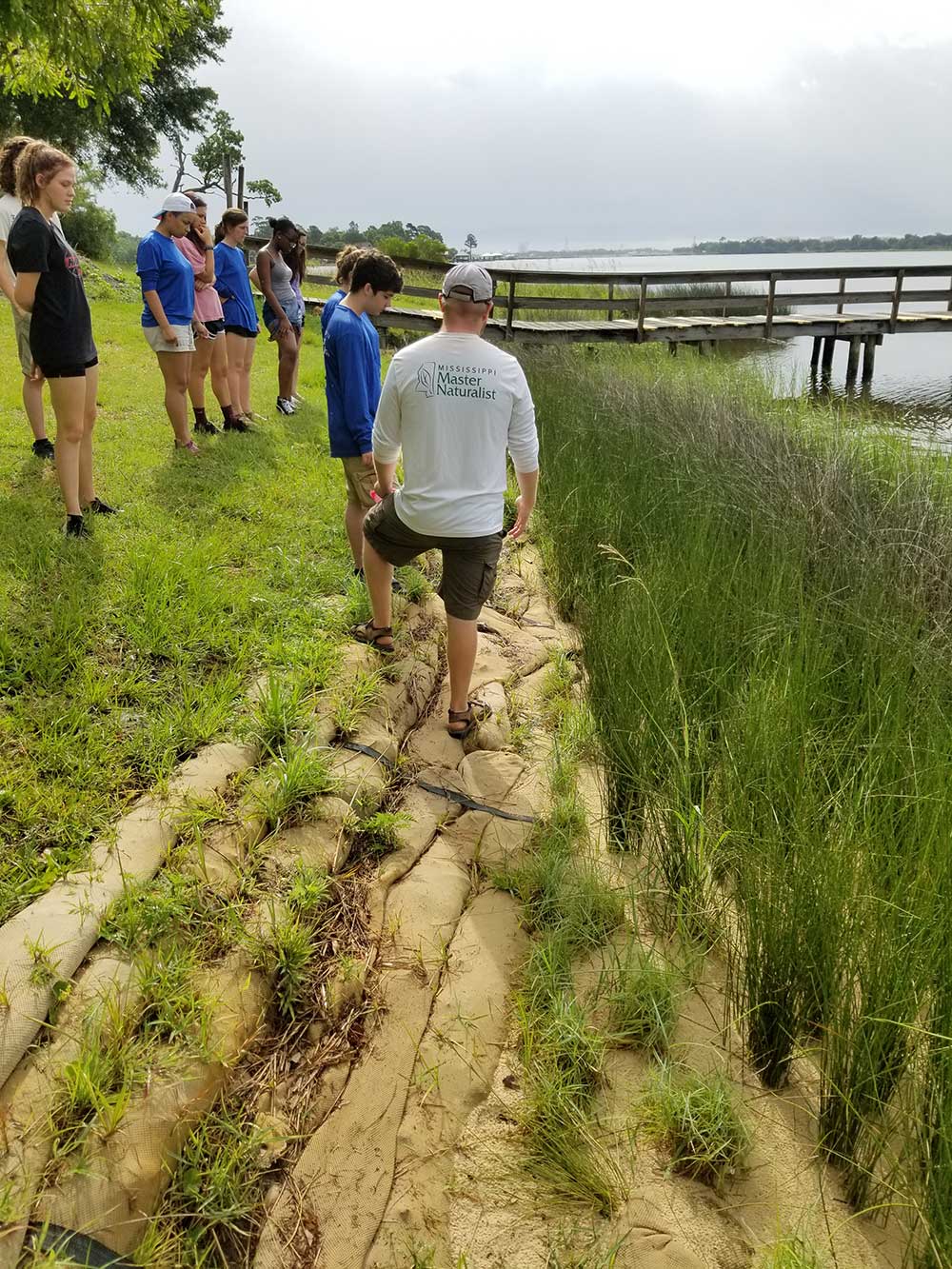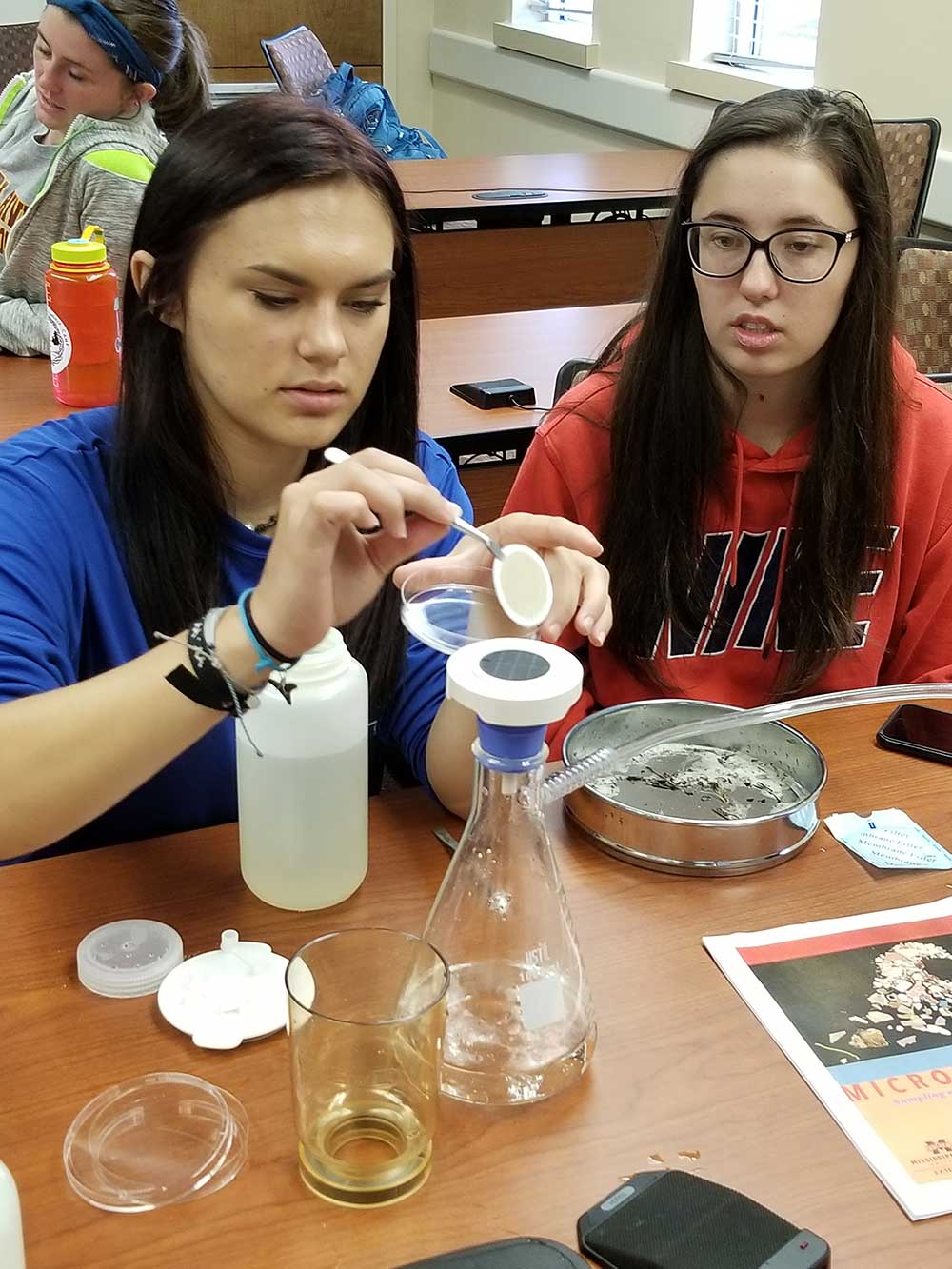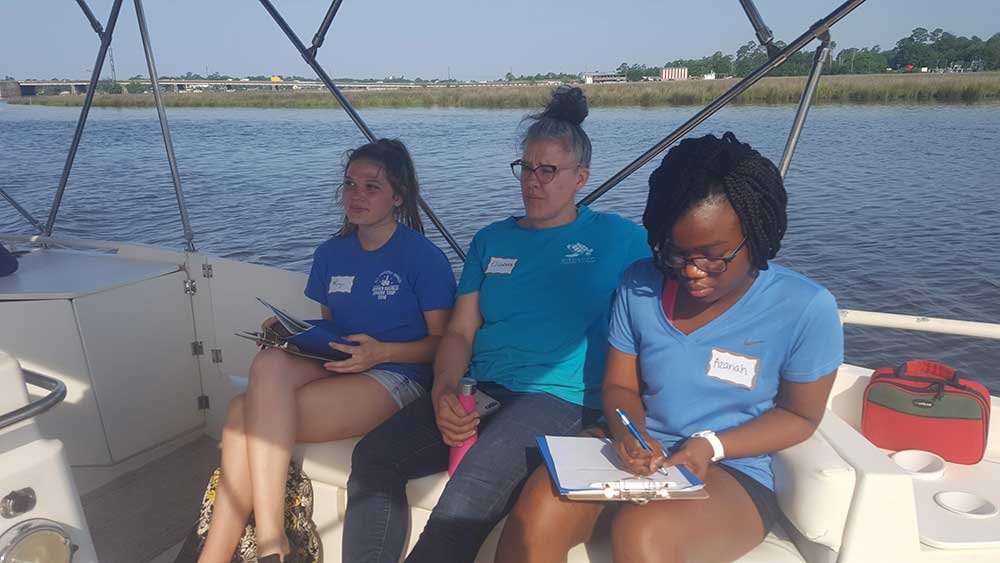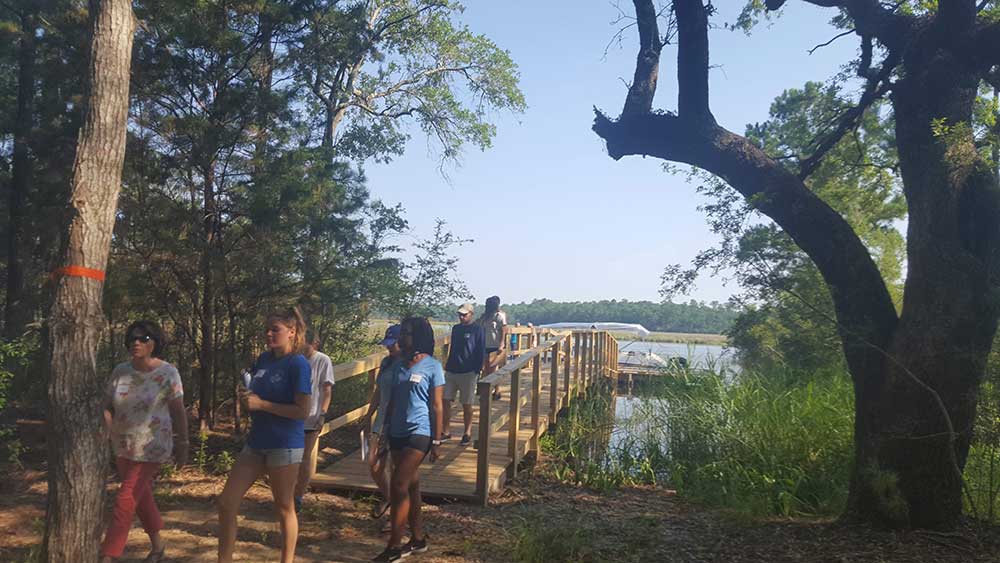

By Kelsey Johnson | Assistant Director, Gulf Coast Community Design Studio
Over the summer, five students from St. Martin High School, just north of Ocean Springs, participated in an internship with Mississippi State University’s Gulf Coast Community Design Studio in partnership with the Land Trust for the Mississippi Coastal Plain.
The internship was part of a year-long program lead by the Gulf Coast Community Design Studio that focused on Old Fort Bayou Watershed and was funded through the National Oceanic and Atmospheric Administration’s (NOAA) Gulf of Mexico Bay Watershed Education and Training (B-WET) Program.
The five students selected for the summer internship, Madelyn Carmichael, Azariah Cooper, Sophia Incer, Alexis Raymond and Morgan Wilson, had completed the B-WET Old Fort Bayou Watershed Program during the 2018-2019 academic year and had all demonstrated a high level of performance and interest in the subject matter.
“Participating in the Old Fort Bayou Watershed B-WET program was a great opportunity for our high school students to apply their classroom learning to real-world applications and become more invested in local environmental issues,” said Mike Heise, former advanced placement environmental science teacher at St. Martin High School. “The summer internship allowed several students with a particular aptitude and interest in the subject to further develop their learning and experience.”
The academic year programming began in October 2018 and challenged students at St. Martin to learn about watershed dynamics in Old Fort Bayou Watershed and the impacts of stormwater runoff on water quality and quantity alongside NOAA staff and other science professionals.
The Old Fort Bayou Watershed consists of just over 32,000 acres in Ocean Springs, Gautier and Jackson County. The bayou is a tributary of the Back Bay of Biloxi and has been identified as a priority watershed by the Mississippi Department of Environmental Quality. St. Martin High School is adjacent to Old Fort Bayou.
Student work during the 2018-2019 academic year programming was included in the Watershed Implementation Plan for Old Fort Bayou that was developed concurrently with funding through a U.S. Environmental Protection Agency (EPA) FY2015 Nonpoint Sources Grant awarded by the Department of Environmental Quality (DEQ) to the Land Trust for the Mississippi Coastal Plain.


The students began their summer internship on June 3 with an orientation and boat trip up Old Fort Bayou led by the Land Trust for the Mississippi Coastal Plain.
During the remainder of the month, all five interns successfully completed the Mississippi Student Master Naturalist Program administered through the Mississippi State University Coastal Research and Extension Center.
This is the first year for the Student Master Naturalist Program, and funding was provided through the EPA Gulf of Mexico Program. The goal of the Student Master Naturalist Program is to educate and foster a network of next generation leaders who can engage their community around environmental topics including marine debris, habitat restoration, coastal resilience and conservation.
As the interns were completing the Master Naturalist Certification, they started to develop ideas for a project that would focus on Old Fort Bayou Watershed and forward the goals and recommendations of the Old Fort Bayou Watershed Implementation Plan. The students chose to focus on litter abatement in the watershed, concentrating on the area in and around St. Martin High School. During the remainder of their internship, the students worked together to develop a formal proposal for a litter program to be implemented at their school; met with school administrators and staff to garner support for the project; and secured supplemental funding through the Student Master Naturalist Program to start up the program.
The first clean-up was held August 17. Volunteers not only picked up litter but collected data on where the majority of the litter is being deposited and what types of litter are most common so that the students can start to proactively address the problem at its source(s), raise awareness and create actions within the student body and community around litter pollution.
“Being able to work with the Gulf Coast Community Design Studio and other partners this summer really opened my eyes to our local issues and made me feel like I could make a difference along with the other interns,” said Carmicheal, a recent graduate of St Martin High School. “They pushed us and made us realize how hard it is to do this work but also showed us that we really can cause positive change in our community if we take the initiative and work hard.”
The Gulf Coast Community Design Studio (GCCDS) was established on the Mississippi Gulf Coast in 2005 to work in communities impacted by Hurricane Katrina and has evolved from disaster recovery to addressing long-term issues of community resilience. Located in Biloxi, the GCCDS is a professional outreach arm of the Mississippi State University College of Architecture, Art and Design and operates with a full-time staff of around six architects, landscape architects and planners, always working in close collaboration with multiple non-profit, municipal and professional partners. The work of the GCCDS includes: 1) community-based housing design, 2) storm water and tidal ecology, 3) flood resilient buildings and landscape, and 4) public-driven decision making.
To learn more about Mississippi State University’s Gulf Coast Community Design Studio, visit: http://gccds.org
To learn more about NOAA and the B-WET program, visit: http://www.noaa.gov/office-education/bwet
To learn more about the Land Trust for the Mississippi Coastal Plain, visit: http://ltmcp.org/